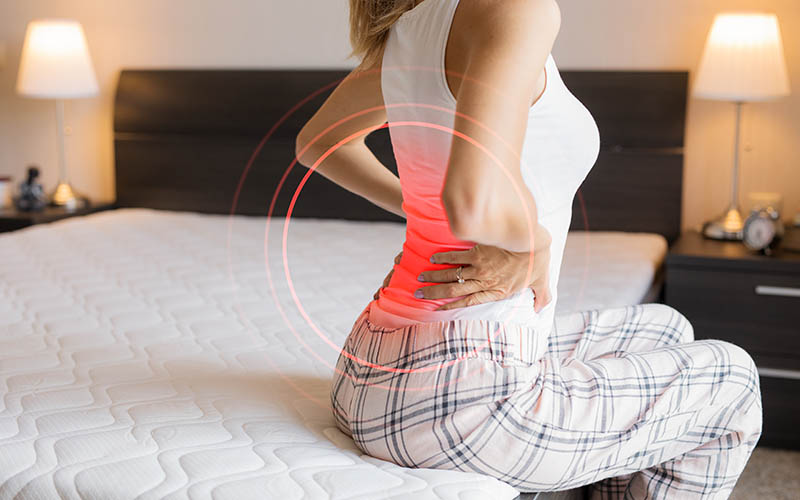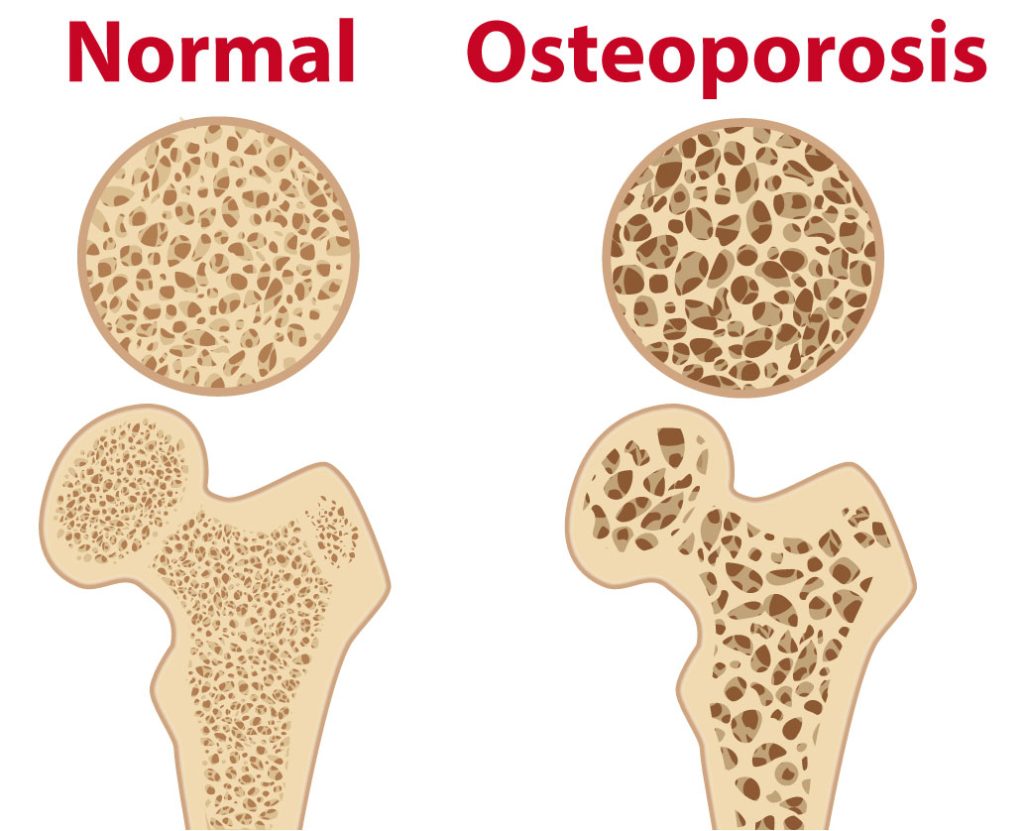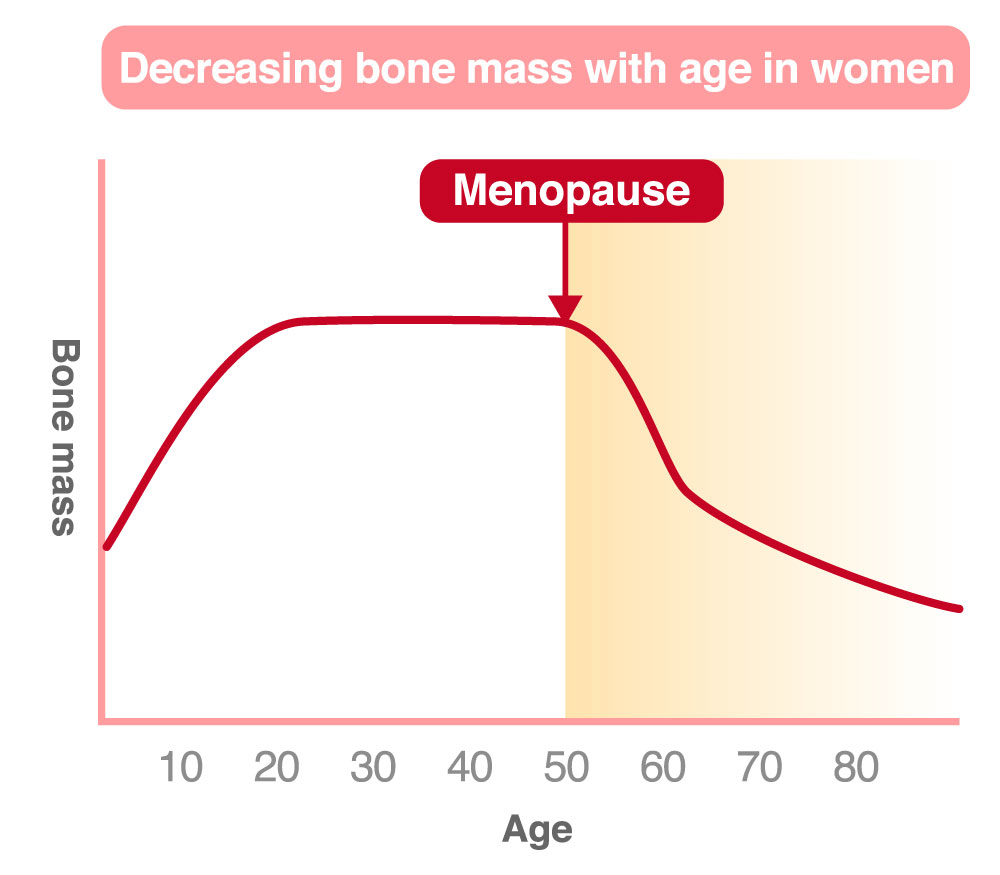Protecting Bone Health During Menopause
As you approach menopause, one of the significant health concerns is the increased risk of osteoporosis. The decline in oestrogen levels during menopause has a direct impact on bone density, which can lead to weaker bones and an increased risk of fractures. However, by making the right lifestyle changes, ensuring proper nutrition, and considering medical treatments like Menopausal Hormone Therapy (MHT), you can protect your bones and reduce the risk of osteoporosis.
At the Menopause Treatment Clinics in Bondi Junction and Sydney, we specialise in helping women maintain healthy bones during menopause, offering personalised care and treatment options that are tailored to your specific needs.

How Menopause Affects Bone Health
During menopause, the body’s ability to absorb calcium and maintain bone density decreases significantly due to a reduction in oestrogen. This hormonal shift accelerates bone loss and increases the risk of developing osteoporosis, a condition that makes bones brittle and more prone to fractures. The loss of bone density can also lead to a decrease in height, posture problems, and pain in the bones and joints.


Family History and Osteoporosis Risk
If you have a family history of osteoporosis, your risk may be higher. Genetics play a significant role in determining your likelihood of developing weak bones, so it’s important to talk to your healthcare provider about a strategy to monitor and protect your bone health during menopause. Early detection through bone density screenings and proactive lifestyle changes can significantly reduce your risk of osteoporosis.

Preventing Osteoporosis and Maintaining Bone Health
There are several ways to prevent bone loss and maintain strong, healthy bones during menopause. Incorporating these habits into your daily life can have a significant impact on your bone health:
- Calcium and Vitamin D
Calcium and vitamin D are crucial nutrients for maintaining strong bones. Calcium is essential for building and maintaining bone density, while vitamin D helps your body absorb calcium.
- Calcium-rich foods: Dairy products (milk, cheese, yogurt), leafy green vegetables (kale, broccoli), and fortified plant-based milks (almond, soy, oat) are excellent sources of calcium.
- Vitamin D: Fatty fish like salmon and mackerel, egg yolks, and exposure to sunlight are great ways to boost your vitamin D levels. It may also be necessary to take calcium and vitamin D supplements, especially if your diet isn’t providing enough. Your healthcare provider can help guide you on the right dosage based on your individual needs.
- Weight-Bearing Exercises
Engaging in weight-bearing exercises is one of the most effective ways to maintain and even improve bone density. These exercises stimulate bone growth and can help prevent bone loss. Some excellent weight-bearing activities include:
- Strength training: Using resistance bands, free weights, or bodyweight exercises like squats and lunges helps stimulate bone-building cells in the body.
- Walking or jogging: These are excellent low-impact weight-bearing exercises that can improve bone strength, mobility, and overall cardiovascular health.
- Balance exercises: Yoga, tai chi, or other forms of balance training can reduce the risk of falls, which is crucial as weakened bones are more susceptible to fractures.


- Menopausal Hormone Therapy (MHT)
MHT can play a significant role in protecting bone health by replenishing oestrogen levels. Estrogen is crucial for maintaining bone density, and its decline during menopause accelerates bone loss.
MHT may be recommended for women at high risk of osteoporosis or fractures. It is essential to have a conversation with your healthcare provider about your risk factors and whether MHT is right for you. At our Menopause Treatment Clinic in Sydney, we offer tailored MHT options to help manage bone health and other menopause symptoms.
Please note: For women with a family history of osteoporosis or breast cancer, it is vital to consult with a healthcare professional to ensure MHT is the right approach for you. - Avoid Smoking and Excessive Alcohol
Smoking and excessive alcohol consumption are both linked to increased bone loss.
- Smoking: Chemicals in cigarettes interfere with the process of bone formation and reduce the calcium available in the bones.
- Alcohol: Drinking in excess can disrupt bone formation and absorption of vital nutrients. Limiting or quitting these habits can help preserve bone density and improve overall health during menopause.
- Regular Bone Density Screenings
For women at risk of osteoporosis – whether due to family history, low calcium intake, or a sedentary lifestyle – regular bone density screenings can help detect early signs of bone loss. Your healthcare provider can recommend the best time to begin screening based on your personal risk factors. Early detection allows for timely intervention and treatment to help manage bone health.

